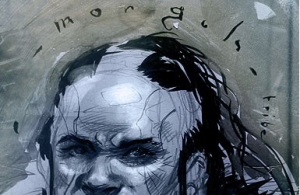Thanks to Slashdot I have been poking around a project that one of my favorite sci-fi authors is involved in, namely the serially online published project The Mongoliad.This work is being supported by a company Stephenson helped create called Subutai Corporation that has developed a platform called PULP for digital novels that have social aspects and multimedia extensions. The platform looks a lot like a structured wiki. The first materials for The Mongoliad are up and smartphone apps are supposed to be coming. I found it hard to read off the web, but I tend to like my sci-fi on pulp.
It will be interesting to see how they explore the medium for this multi-authored novel.
The New York Times has a good story on the project here.


